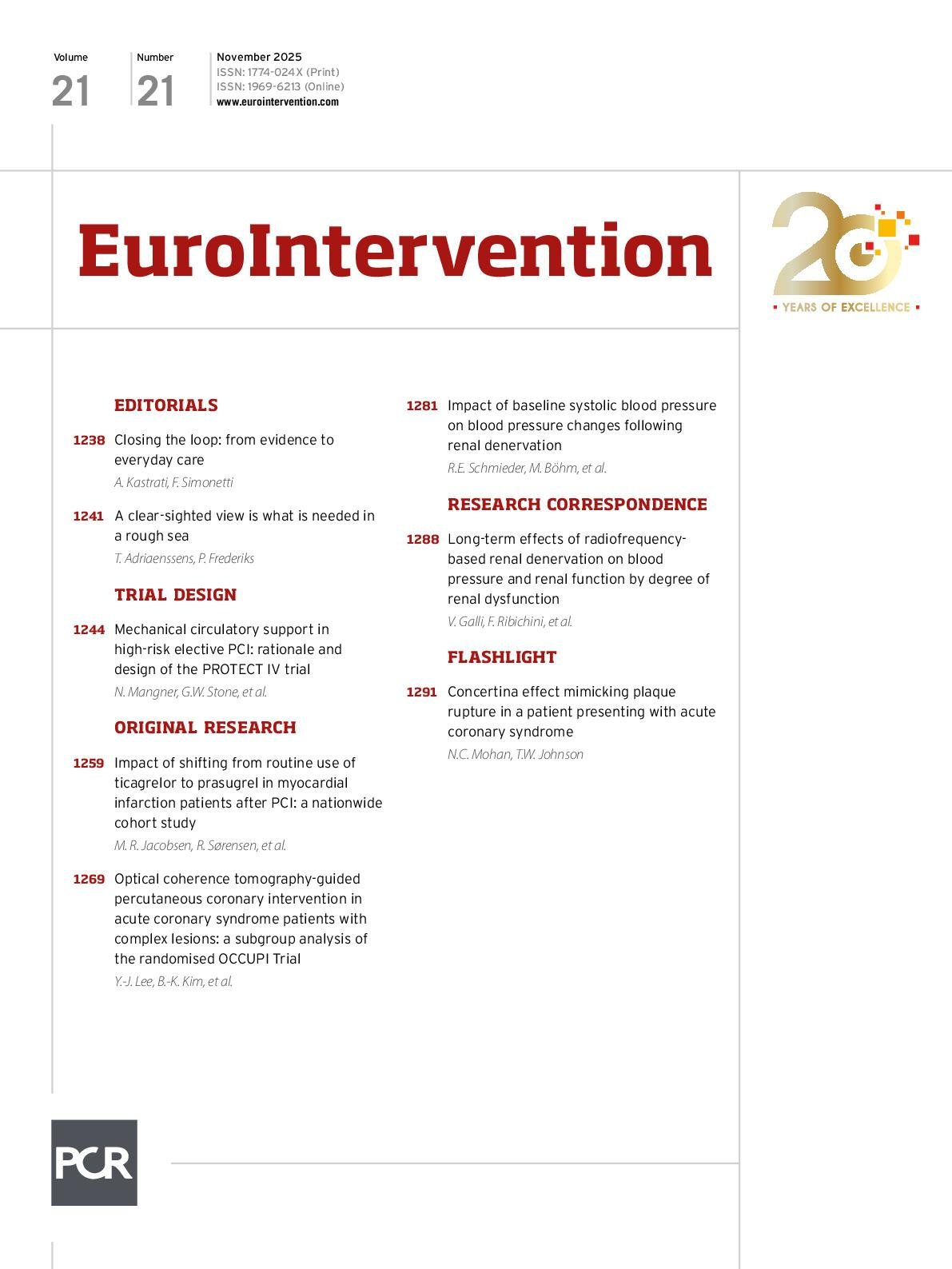Abstract
Background: In 2020, the Danish national guidelines changed to recommend prasugrel over ticagrelor in patients with myocardial infarction (MI) treated with percutaneous coronary intervention (PCI), prior to the 2023 update to the European guidelines.
Aims: We aimed to assess whether the shift from routine use of ticagrelor to prasugrel was implemented on a national level and whether prasugrel was associated with lower rates of major adverse cardiovascular events (MACE) and with similar bleeding rates compared to ticagrelor.
Methods: This register-based cohort study identified MI patients treated with PCI from 2019 to 2022 using Danish nationwide registries. Patients without contraindications were included if they were alive and redeemed a prasugrel or ticagrelor prescription within 7 days from discharge.
Results: In total, 10,984 patients redeemed prasugrel (38.0%) or ticagrelor (62.0%). In 2019, >99% of patients were treated with ticagrelor. By 2022, 89% of patients were treated with prasugrel. Prasugrel-treated patients were younger, more often male, had ST-segment elevation MI (STEMI) more frequently, and had fewer cardiovascular comorbidities than ticagrelor-treated patients. P2Y12 inhibitor adherence was high, and 4.3% of patients switched from prasugrel and 18.8% from ticagrelor. Prasugrel was associated with reduced 1-year rates of MACE (adjusted hazard ratio [adjHR] 0.67, 95% confidence interval [CI]: 0.47-0.95) and MI (adjHR 0.65, 95% CI: 0.44-0.96) compared with ticagrelor, without differences in bleeding after adjustment. These findings were replicated in a propensity score-matched population, in patients aged ≥75 years, and in non-STEMI patients.
Conclusions: A shift from ticagrelor to prasugrel occurred between 2019 and 2022 among real-world MI patients post-PCI. Prasugrel was associated with reduced rates of MACE and MI and with similar bleeding rates compared with ticagrelor, supporting current guideline recommendations.
Sign up for free!
Join us for free and access thousands of articles from EuroIntervention, as well as presentations, videos, cases from PCRonline.com

